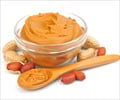A new report suggests that, children can get up to almost one-half of their whole energy intake from snacks, and providing them with nutritious, low-fat snacks can have a significant impact on their health.
Dr. Debra K. Sullivan of the University of Kansas Medical Center felt that, they get the nutrients, they get the energy they need, and they don't go eating the chips. Recent studies have shown that snacking is growing among US children, who consume a minimum of up to two snacks per day. However, the most popular snack foods are also the least healthy, such as soft drinks, potato chips and candy bars.Researchers suspect obesity and poor nutrition among US children may be due in part to unhealthy snacking. But, as Sullivan and colleagues report in this month's issue of the Journal of the American Dietetic Association, simply substituting healthier foods for unhealthy snacks could have a significant impact on children's diets.
In the study, students given low-fat, nutritionally fortified ice cream as an afternoon snack obtained less of their total daily calories from fat during the days they were given the snack than when there was no healthy snack provided, with the percent of calories from fat in their diet dropping by almost two points.
In addition, the investigators found that healthy snacks provided kids with enough iron and calcium to meet the total daily requirements for each of those nutrients. Prior to the study, the children had not been getting adequate amounts of either of those nutrients in their diets.
Sullivan's team obtained their findings from a study of 50 Nebraska sixth graders. The researchers provided the students with an 8-ounce portion of healthy ice cream three afternoons per week for 4 weeks. During the 3-month study period, which included a month before and a month after the period when children were given the ice cream, researchers calculated the students' dietary intake by questioning them once a week about the foods they had eaten during the past 24 hours.
According to Sullivan, she was pleased to see that a simple intervention like providing healthy snacks could lead to such significant improvements in children's diets. Although the percentage of daily calories from fat did not decrease much, she pointed out that the outcome was the same as seen with other, more expensive and time-consuming interventions. For example, a 3-month education program was found to lower the percentage of calories youngsters got from fat by only 1.5%--less than this study achieved.
Advertisement











